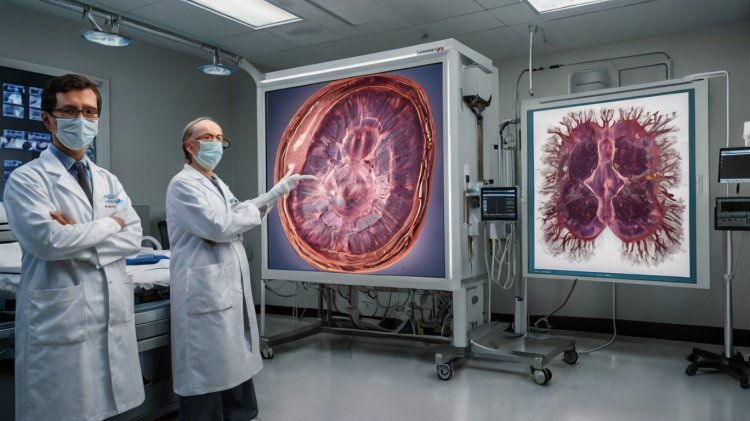15 Revolutionary Breakthroughs Transforming Cancer Treatment in 2024
Discover the latest advancements in cancer research and treatment that are redefining the fight against cancer in 2024. From personalized cancer vaccines to AI-powered diagnostics and innovative therapies, explore how cutting-edge science is improving outcomes and saving lives worldwide.

15 Revolutionary Breakthroughs Transforming Cancer Treatment in 2024
Introduction
Cancer continues to be one of the leading causes of death worldwide, claiming over 10 million lives annually. Yet, thanks to relentless research and innovation, the global fight against cancer has seen remarkable breakthroughs. This article explores 15 game-changing advancements in cancer treatment and diagnosis, showcasing how cutting-edge science is saving lives and improving outcomes.
1. Personalized Cancer Vaccines
Personalized cancer vaccines are a promising new treatment that primes the immune system to target cancer cells. Trials using mRNA technology—similar to COVID-19 vaccines—are underway, involving over 200 patients in multiple European countries. These vaccines could significantly reduce cancer recurrence while minimizing side effects compared to traditional chemotherapy.
2. Multi-Cancer Early Detection Test
Researchers in the U.S. have developed a blood protein test capable of detecting 18 early-stage cancers with over 90% accuracy in men and 84% in women. Although in its infancy, this test has the potential to revolutionize early detection and enable widespread population screening.
3. Seven-Minute Cancer Treatment Injection
England’s NHS is pioneering a seven-minute cancer treatment injection. This new method—using the drug Atezolizumab—reduces administration time from an hour-long infusion to mere minutes. It’s expected to benefit thousands of patients, especially those battling lung and breast cancer.
4. AI-Driven Cancer Diagnostics
Artificial intelligence is transforming cancer care, particularly in countries like India. AI-based tools can analyze X-rays, identify cancer in regions lacking imaging experts, and provide risk profiling for common cancers like breast cancer. These interventions accelerate early diagnosis and treatment.
5. Precision Oncology
Precision oncology uses genomic analysis to tailor treatments based on a tumor’s molecular profile. By identifying unique mutations in cancer cells, this approach delivers targeted therapies that reduce harm to healthy cells and improve treatment outcomes. Notable initiatives like the UK’s 100,000 Genomes Project highlight its potential.
6. CAR-T-Cell Therapy Evolution
CAR-T-cell therapy, which re-engineers immune cells to destroy cancer cells, has shown promising long-term results. While initial concerns about secondary cancers exist, researchers are optimizing the technology to expand its effectiveness for leukemia and other cancers.
7. Revolutionary Cervical Cancer Treatment
A global study spanning five countries has discovered that a short course of pre-treatment chemotherapy reduces the risk of cervical cancer mortality by 40%. This approach could become a new standard of care, providing hope for thousands of women worldwide.
8. Liquid and Synthetic Biopsies
Liquid biopsies, which detect cancer through blood samples, and synthetic biopsies, which force cancer cells to reveal themselves, offer less invasive diagnostic options. These techniques are crucial for identifying cancers at earlier, more treatable stages.
9. AI Model Predicting Lung Cancer Risk
MIT scientists have developed ‘Sybil,’ an AI model capable of predicting lung cancer up to six years in advance. This groundbreaking tool analyzes low-dose CT scans, potentially enabling earlier intervention and improving survival rates.
10. Pancreatic Cancer Detection Advances
Early detection of pancreatic cancer—one of the deadliest cancers—has improved with a test that identifies biomarkers in extracellular vesicles. This breakthrough has a 95% accuracy rate for detecting pancreatic cancer at early stages.
11. Breast Cancer Prevention Tablets
England’s NHS is introducing a drug called anastrozole to prevent breast cancer. Repurposed from a treatment drug, it reduces estrogen levels and is expected to halve the risk of developing breast cancer in high-risk women.
12. Enhanced Radiotherapy
New studies suggest that a drug called a RAGE inhibitor can make radiotherapy more effective for patients whose cancers resist treatment. This personalized approach could significantly improve outcomes for those with brain metastases.
13. Engineering Immune Cells with Nanotechnology
Scientists are now engineering immune cells to target and destroy cancer cells more effectively. Using nanotechnology to deliver enhancing drugs, this innovation could lead to superior immunotherapy options.
14. Decoding DNA ‘Signatures’ in Cancer
Research from Cambridge University Hospitals has revealed DNA “mutational signatures” that offer insights into cancer’s origins. This knowledge helps oncologists understand what drives specific cancers, guiding tailored treatment strategies.
15. Fighting Metastasis in Breast Cancer
Italian researchers have identified antioxidants that enable dormant breast cancer cells to survive in the lungs. Targeting these antioxidants could eliminate “sleeping” cancer cells, preventing metastases and improving long-term survival rates.
Conclusion
The fight against cancer is advancing at an unprecedented pace, thanks to innovations in personalized medicine, AI diagnostics, and targeted therapies. These breakthroughs offer renewed hope for millions affected by cancer worldwide. Continued investment in research and collaboration across borders is crucial to maintaining this momentum.
FAQs
1. What is the biggest breakthrough in cancer treatment in 2024?
The development of personalized cancer vaccines and enhanced AI-driven diagnostics are among the most notable advancements.
2. How does AI help in cancer care?
AI improves early detection, risk profiling, and treatment planning by analyzing complex imaging and genomic data.
3. What are liquid biopsies?
Liquid biopsies are non-invasive blood tests that detect cancer by identifying biomarkers shed by tumors.
4. Can pancreatic cancer be detected early?
Yes, new biomarker-based tests have achieved 95% accuracy in detecting early-stage pancreatic cancer.
5. What is precision oncology?
Precision oncology tailors treatment based on the unique genetic and molecular characteristics of a patient’s tumor.










